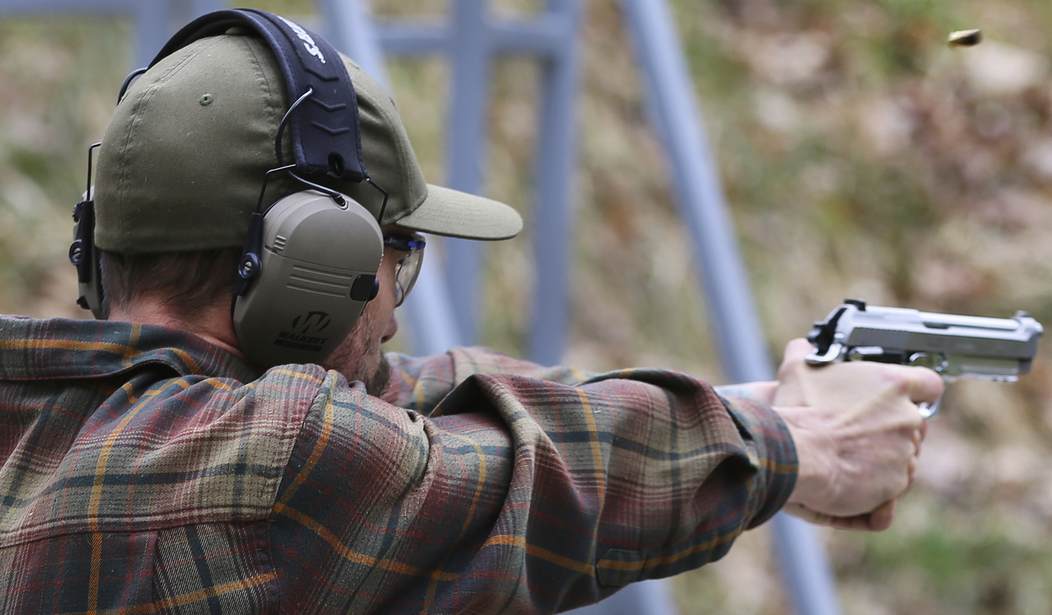One of the most overlooked problems with those pushing for gun control is that in their arguments for making it harder for Americans to keep and bear arms, they distract from the underlying issues that lead to high violent crime rates.
Instead of addressing the root causes behind criminal activity, the anti-gunner lobby would rather focus on disarming law-abiding citizens, making them more vulnerable to bad actors. Unfortunately, since these laws do little to nothing to curb violent crime, the problem still persists, especially in places like Mississippi.
Sid Salter, editor of the Lawrence County Press, published an op-ed discussing violent crime in Mississippi. In the piece, Salter highlights high rates of crime in the state’s rural areas, noting that “we are conditioned to a self-image of small communities … where crime and violence are almost non-existent and the real dangers from gun violence lurk on the streets and back alleys of Chicago, New York, Detroit, and Los Angeles.”
However, the mean streets are not limited to the big cities. Rural Mississippians now live squarely in locales prone to gun violence. We don’t live in Mayberry in the rural South. We live in a region and a state with a dangerous rate of gun death and gun violence, and we are – as a state – among the nation’s leaders in household gun ownership.
He also acknowledges that Mississippians “consistently and strongly support the Second Amendment right to keep and bear arms for hunting and self-protection,” and does not impose onerous gun laws restricting this right. The author then notes how one of the most anti-gunner organizations in the country rates Mississippi.
At the same time, liberal or “progressive” entities supporting limits on Second Amendment rights label Mississippi as having the worst gun laws in the country. The Giffords Law Center to Prevent Gun Violence – named for gun violence victim former U.S. Rep. Gabrielle Giffords, of Arizona – describes Mississippi’s gun laws as follows: “Mississippi has the weakest gun laws in the country and the highest gun death rate…(the state) passed a dangerous permitless carry law in 2016 which allows almost anyone to carry hidden, loaded guns in public without a background check or law enforcement oversight.”
From across the political spectrum in the gun law debate, there is ample hyperbole and alarmist rhetoric. But the fact is that the U.S. Centers for Disease Control and Prevention has ranked Mississippi as having the highest rate of gun deaths in the country at 29.6 per 100,000 residents. That’s just over double the national rate of 14.2 gun deaths per 100,000 residents.
The author also references a study finding that gun deaths are supposedly more likely in rural towns than in major cities. However, unlike anti-gunners, he is honest enough to acknowledge that 47 percent of these deaths were suicides while the same percentage were homicides. He also concedes that in Mississippi, imposing more restrictions on firearms “is a non-starter.”
Anyone who supports gun rights knows that a negative rating from the Giffords Center should be worn as a badge of honor. However, the state’s rate of gun deaths is alarming. Yet, it has little to do with not further restricting firearms.
To be fair, Salter doesn’t actually call for more gun control measures, so it is not clear where he stands on the issue. But he is right about the problems Mississippi has with violent crime – especially in rural areas. Anti-gunners typically use these numbers as evidence that we need more gun control to magically reduce these troubling numbers.
But what these people tend to ignore is the fact that most gun crimes are committed to using firearms that were obtained illegally.
The ATF found that 54% of traced crime guns were recovered by law enforcement more than three years after their purchase. Those guns were legally purchased, but were later used in crimes, the report indicated.
"Crime guns may change hands a number of times after that first retail sale, and some of those transactions may be a theft or violate one or more regulations on firearm commerce," the ATF's report reflected.
The unavoidable reality in this debate is that gun control laws are impotent to stop people who refuse to follow them. Moreover, the focus on restricting lawful gun ownership distracts from the underlying causes of crime. It purports to put a Band-Aid on the problem rather than actually taking on the root causes.
Instead of fixating on gun ownership, it makes more sense to look at issues such as poverty, lack of education, social and family dynamics, and other issues. Poverty, in particular, is a serious issue in Mississippi, which has the highest population living under the poverty line.
Perhaps instead of trying to make it harder for Americans to defend themselves, those who are serious about reducing gun crime could seek out solutions that might actually work.













